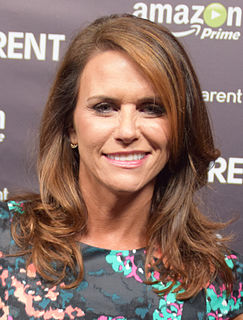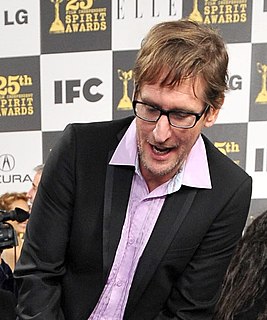A Quote by Amy Landecker
I feel like handling a narrative in fiction is a wonderful way to teach stories that then open a pathway to reality and understanding.
Related Quotes
Writers imagine that they cull stories from the world. I'm beginning to believe that vanity makes them think so. That it's actually the other way around. Stories cull writers from the world. Stories reveal themselves to us. The public narrative, the private narrative - they colonize us. They commission us. They insist on being told. Fiction and nonfiction are only different techniques of story telling. For reasons that I don't fully understand, fiction dances out of me, and nonfiction is wrenched out by the aching, broken world I wake up to every morning.
I obviously read and adore traditional fiction. I teach traditional fiction, I also teach all kind of not-so-traditional fiction. And since I'm such a plot buff, and I'm really such a narrative buff, I can't seem to relinquish my - not just reliance - but excitement about those traditional techniques.
Who reads short stories? one is asked, and I like to think that they are read by men and women in the dentist's office, waiting to be called to the chair; they are read on transcontinental plane trips instead of watching banal and vulgar films spin out the time between our coasts; they are read by discerning and well-informed men and women who seem to feel that narrative fiction can contribute to our understanding of one another and the sometimes bewildering world around us.
Any narrative, whether it's fiction or not, you have to approach it as though it really happened to you. I think that's the only way to get inside the characters and make the narrative work. It's a storytelling tradition, and I think to come off as genuine then you have to really approach it that way.
To read fiction means to play a game by which we give sense to the immensity of things that happened, are happening, or will happen in the actual world. By reading narrative, we escape the anxiety that attacks us when we try to say something true about the world. This is the consoling function of narrative — the reason people tell stories, and have told stories from the beginning of time.
I had lines inside me, a string of guiding lights. I had language. Fiction and poetry are doses, medicines. What they heal is the rupture reality makes on the imagination. I had been damaged, and a very important part of me had been destroyed - that was my reality, the facts of my life. But on the other side of the facts was who I could be, how I could feel. And as long as I had words for that, images for that, stories for that, then I wasn't lost.




































